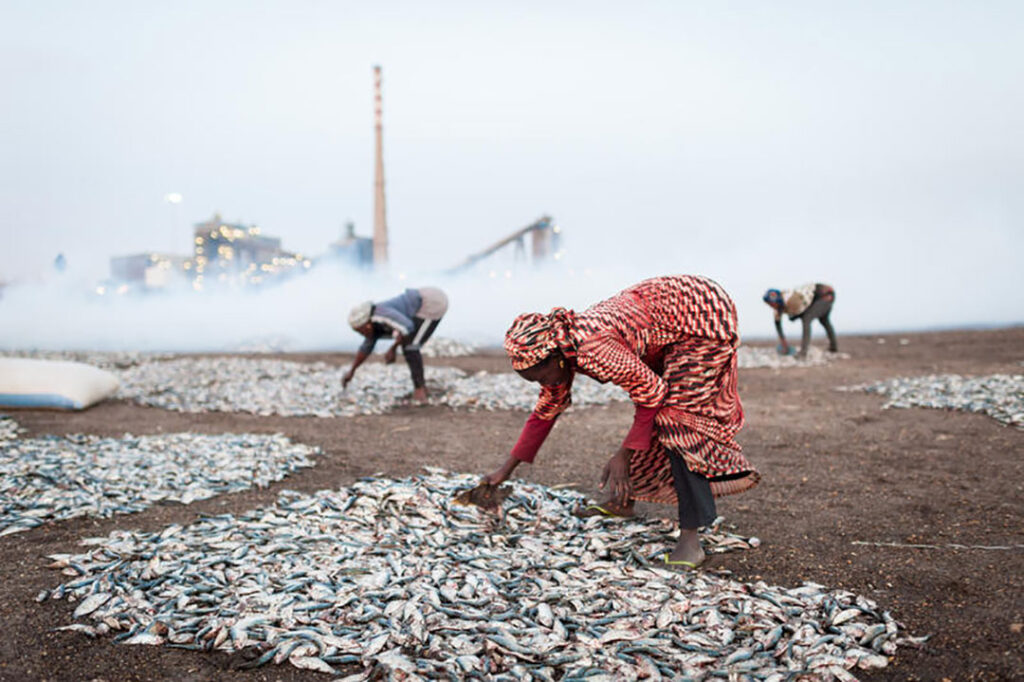ADF STAFF
From Mauritania to Benin, trawlers’ illegal, unreported and unregulated (IUU) fishing tactics are drawing scrutiny. Vessels in West African waters sail under flags of convenience and use deception to haul in huge catches that decimate local ecosystems.
Chinese vessels are among the worst offenders and recently caused controversy in Senegal. There, a Chinese fishing fleet previously caught illegally fishing in Djibouti, was granted fishing licenses amid lockdown measures to contain COVID-19.
Senegal’s Fishing Ministry publicly rejected the applications of 52 trawlers, but pressafrik.com, an online newspaper based in Dakar, reported that the government issued licenses to three fishing vessels in China’s Fu Yuan Yu fleet. The report was later confirmed by Greenpeace, the nongovernmental environmental organization.
“If the license process was transparent, no one would be asking whether the department has signed new licenses or not,” Mor Mbengue, a member of the Platform of Artisanal Players of Senegal’s Fisheries, told Quartz Africa. “The artisanal fishing actors, who are the most impacted, are not always consulted by authorities when licenses are attributed, even though they should be as representatives of the Committee of License Attribution.”
Ships in the Fu Yuan Yu fleet were chased off by Djibouti’s Coast Guard in 2017, after local fishermen protested their presence, France 24 reported.
The licensing of large Chinese trawlers angered artisanal fishermen in Senegal, who already deal with reduced catches. Ninety percent of the fisheries are fully fished or facing collapse in the country’s waters, according to the United Nations. As in other parts of West Africa, Senegal’s fish are mostly exported to Asia and Europe, routinely as fishmeal or fish oil produced at Chinese-owned factories that pollute the environment.
In Senegal, industrial fishing has continued despite the closure of markets to prevent the spread of COVID-19, Tal Harris, communications coordinator for Greenpeace Africa, told Quartz Africa.
“The already problematic competition between the artisanal sector and large-scale foreign fishing industries is thus made even far worse for the declining West African fish stocks,” Harris said. “Some of these foreign companies have even made attempts to profit from the COVID-19 lockdown to continue their illegal practices, knowing that the attention of civil society and the majority of actors is being captured by the pandemic.”
Chinese trawlers commonly use huge nets capable of catching tons of fish per day — far beyond the capacity of local fishing boats — often in prohibited zones.
China says its distant-water fishing fleet has about 2,600 vessels, but studies such as one by the Overseas Development Institute say the number is closer to 17,000.
The exact number of vessels in China’s distant-water fishing fleet is hard to gauge because many are flagged to other countries, mostly African nations, according to the Coalition for Fair Fisheries Arrangements.

